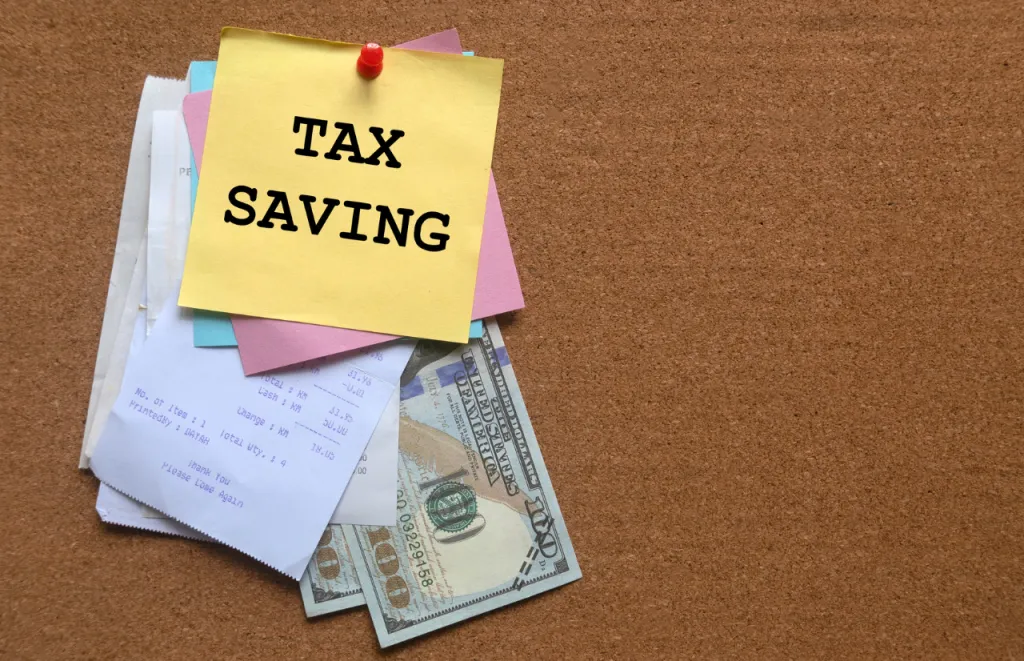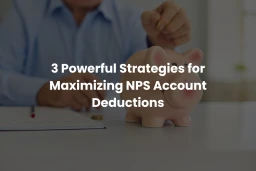Tax saving mistakes that you should avoid

India is well-known for its dynamic financial sector, which provides numerous tax-saving options to all Indians. Although some of these solutions sound fantastic, they are not feasible in practice.
Making financial decisions is critical when it comes to saving taxes because taxes are considered an essential part of any democracy.
The federal and state governments rely on taxes, whereas citizens rely on their government for a variety of reasons, including job opportunities, favourable business conditions, and so on.
Every year, millions of new taxpayers are introduced in India, and these individuals must become acquainted with the Income Tax Department’s timelines, slabs, and rules. Even taxpayers get into trouble when tax regulations change along with the budget every year. So let’s take a look at the most common tax-saving mistakes they make.
Investing Money in Endowment Insurance Plans
Endowment insurance plans are life insurance schemes purchased by a group of people in order to benefit from tax breaks. Endowment plans, on the other hand, will not provide adequate returns in the future.
When a person walks into a bank or meets with a life insurance agent about tax-saving strategies, they are always advised to purchase endowment life insurance plans.
It is because they receive the highest commission, which is usually 35% of the first-year premium and 5% on remaining premiums on endowment life insurance plans, that they persuade people to buy this plan by mentioning future benefits. These plans are considered long-term because they typically last 10 to 20 years. People must spend their money until the expiration date of the premium, and if they redeem before then, they will not receive their initial investment back.
Investing in endowment life insurance plans is one of the most common mistakes made by taxpayers. Who fail to consider other effective tax-saving strategies that provide decent returns.
In comparison to endowment insurance plans, a person should invest in term plans that qualify for a tax deduction under Section 80C. However, rather than investing real money in endowment insurance plans, a person should consider other tax-saving strategies.
Ignoring Tax- Exempt expenses
Ignoring necessary expenses is the most common mistake that people make. They are unaware that expenses for health insurance premiums, house loan payments, children’s tuition fees, and other expenses are valid tax deductions.
House Rent Allowance is one of the most common allowances (HRA). Most companies provide house rent allowance to the majority of their employees, and if they do not receive their allowance. They can claim a deduction of up to Rs 2,000 per month in their income tax returns.
When it comes to tax-saving investments, many people limit their declarations to Section 80C only.
They are unaware of other tax breaks for housing interest, medical expenses, charitable contributions, and other expenses. A person must be aware of all expenses that qualify as tax deductions in order to avoid wasting money by paying more taxes. As a result, he should not concentrate on Section 80C benefits and make sure to claim the deductions.
Making an incorrect move
A person who rushes into tax-saving decisions will end up locking funds into an unsuitable investment that does not align with his goals.
For example, if a person invests in a ULIP for five years in order to achieve a goal, he will not see any fruit. Similarly, if he is looking to build wealth over the long term and chooses a 5-year tax-saving method. Such as a Fixed Deposit or another, the goal will not be met.

Unable to meet the Section 80C limit
Section 80 allows individuals to deduct up to 1,50,000 in taxes. However, not everyone reaches the Section 80C limit because they end up paying more income taxes than necessary. As a result, are unable to meet the Section 80C limit.
Furthermore, a person must be well-versed in rules because tax benefits deal with underlying terms and conditions that a person should be aware of prior to investing.
For example, because life insurance only applies to 10% of the sum assured, the entire premium is not tax deductible.
However, some investors believe that the entire premium is tax deductible. This causes them to rush into such products, which they purchase in order to save taxes.
It is not necessary to invest the entire 1.5 lakh to save taxes. To reap the full benefits of the Section 80C tax deductions, a person must plan their tax-saving investment and invest accordingly.
Also, being aware of the underlying terms and conditions will allow them to better plan their finances.
People Hurry To Save Taxes In the Last Minute and Delay Tax-Saving Investments
An investment portfolio is critical in developing your investment image. Several people who are unaware of tax deductions tend to rush and make rash decisions when it comes to making tax-saving investments.
Furthermore, making tax-saving investments at the last minute will not allow people to reap the full benefit. A large one-time investment will throw the monthly budget into disarray.
When it comes to tax-saving investments, timing is everything. To build a diverse investment portfolio, a person should begin investing at the beginning of the fiscal year.
Using Emergency Funds For Mindless Investments
Several people break their piggy bank, use their emergency funds for mindless investment with the primary goal of saving taxes.
A person should not consider an emergency fund or investing to save taxes. They are kept for emergency purposes and not as an investment instrument.
The best thing a person can do is create a fund and set it aside only for major emergencies. Keeping their tax-saving paws away from it.
Follow us on Instagram.









